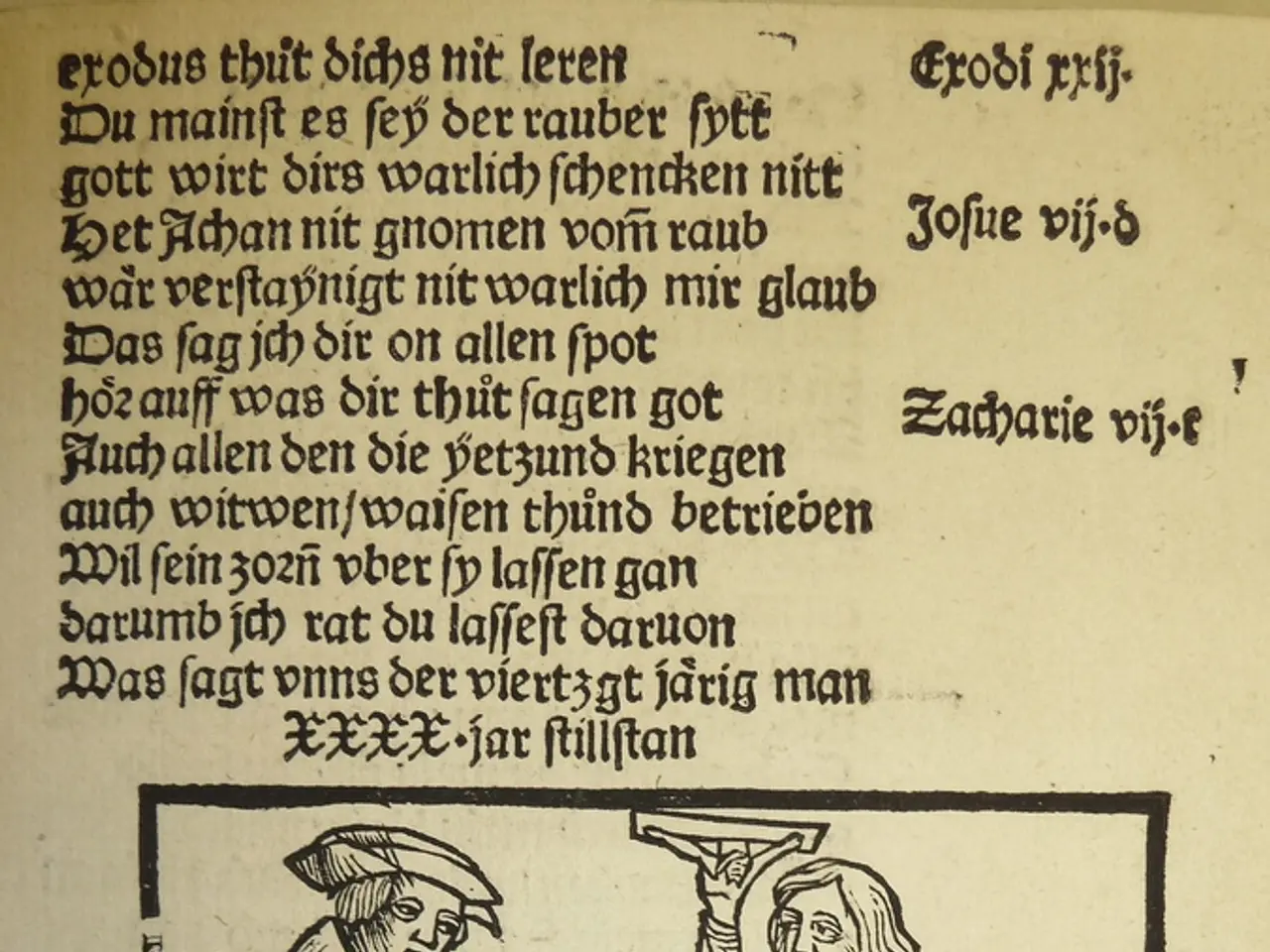Discussing the semantics of names and the controversy surrounding Taiwan's self-determination
In the world of academia and beyond, an intriguing issue has arisen: the unintentional use of Chinese-derived names in papers by students, leading to errors such as rendering "Mozambique" as "mosanbiya" instead of "mosanbike." This seemingly minor oversight, however, is part of a larger, more complex narrative that unfolds across the Taiwan Strait.
The translation of foreign names and places in Taiwan and China carries significant cultural and political implications, reflecting divergent identities, political status claims, and language policies. These differences are not just a matter of phonetic conversion, but reflect values, identity stances, and narrative frameworks embedded within the language.
Political Identity and Sovereignty Claims
Taiwan often uses traditional Chinese characters along with romanizations that reflect local language preferences, such as Tongyong Pinyin or Wade-Giles, emphasizing a distinct identity separate from Mainland China. This is evident in the official context where Taiwan is often referred to as "Republic of China (Taiwan)," highlighting its political status as a partly recognized state distinct from the People's Republic of China. In contrast, Mainland China adopts simplified Chinese characters and mainly uses Hanyu Pinyin romanization.
Language and Romanization Systems as Political Symbols
Mainland China promotes Hanyu Pinyin for transliteration and simplified characters to unify linguistic representation, projecting centralized authority. Taiwan's use of traditional characters and alternate romanization systems serves as a cultural marker of its political autonomy and historical continuity. This divergence signals competing narratives: Mainland China’s preference underscores administrative control and modernization, while Taiwan’s approach asserts preservation of cultural heritage and sovereignty.
Name Usage Reflects Historical Claims and Political Sensitivities
The name "Taiwan" itself, rooted in various historical sources including Dutch and indigenous terms, is differently framed in each locale. Mainland China might emphasize simplified characters and pinyin transliterations consistent with its official language policy, whereas Taiwan’s forms reflect local vernaculars and traditional scripts, emphasizing historical continuity and indigenous roots.
Implications for International Recognition and Diplomatic Language
How Taiwan and Chinese place names are translated or romanized internationally can reflect or influence diplomatic stances. The choice of names, scripts, and romanization systems are thus embedded in broader geopolitical contestations. For example, international maps or documents that use "Taiwan" with traditional characters or refer to it as a separate entity vs. "Taiwan, China" aligns with different political perspectives.
Translated Names as Cultural Stances and Power Relations
Every choice of a translated name entails specific cultural stances and power relations within a given context. In the Chinese-speaking world, the translation of foreign names or places has become a cultural choice and a form of discursive construction. Linguistic laziness could lead to intellectual concession and ideological compromise.
Taiwan must maintain the independence of its naming system in translation to preserve its capacity to name the world and interpret reality. Taiwan's use of Chinese-derived names for foreign figures and geographic locations risks confusing information and unconsciously accepting China's linguistic logic and narrative.
The Wikipedia entry for US President Donald Trump, for instance, is titled "tangna chuanpu" (唐納·川普) in Taiwan, while major media outlets like the Chinese-language Liberty Times use "chuanpu." In contrast, China's official media use "telangpu," following Xinhua's standardized naming rules.
Beyond Trump's name, there are also differences in the Chinese and Taiwanese translations of geographic names such as New Zealand, Guatemala, and the Diaoyutai Islands. As a sovereign and independent society, Taiwan should view and describe the world in its own way.
Conclusion
Translation theorist Andre Lefevere describes translation as a form of "rewriting," implying that while converting languages, the translator also reconstructs texts, conveys perspectives, and recreates values. These differences reflect the cultural perspectives and political attitudes of different linguistic communities. Differences in translated names reveal fundamental divergences in linguistic subjectivity, cultural identity, and discursive power across the Taiwan Strait.
- The usage of traditional Chinese characters and local romanizations in Taiwan emphasizes a unique identity distinct from Mainland China, highlighting its political autonomy and historical continuity, while Mainland China promotes simplified characters and Hanyu Pinyin romanization as a symbol of centralized authority and modernization.
- The translation of foreign names and places in Taiwan and China carries implications beyond phonetic conversion, with each locale framing the name "Taiwan" differently to reflect political status claims and historical roots.
- The choice of names, scripts, and romanization systems for international documents can reflect or influence diplomatic stances, as seen with the differences in the Chinese and Taiwanese translations of US President Donald Trump's name and geographical locations such as New Zealand and Guatemala.
- Translation of foreign names and places in the Chinese-speaking world serves as a cultural choice, and linguistic laziness could lead to intellectual concession and ideological compromise, making it crucial for Taiwan to maintain the independence of its naming system to preserve its capacity to name the world and interpret reality.




